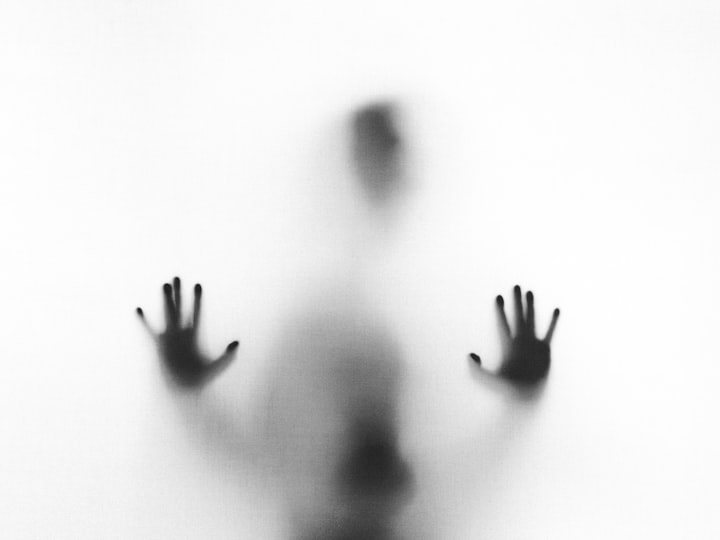Criminal Complexity
Motive and Psychology Behind Criminals

I don't know about you but I am so fascinated in the world of true crime, especially when understanding the minds of criminals. What got them there? What happened that made them spiral into where they are today in history? What factors have they considered before even choosing this terrifying route? I am not a criminal sympathizer but getting into the minds of criminals is something I have truly been fascinated about for a while since I also love to understand the reasons why these crimes took place.
The labyrinthine terrain of human conduct that is the realm of criminals is where the motivations, deeds, and psychology of individuals who break the law are examined. Even though it's important to recognize that criminal behavior can be influenced by a variety of things, such as upbringing, environment, and personal decisions, learning more about how criminals think can help us understand why they act the way they do and open up possibilities for prevention, rehabilitation, and ultimately, justice. We set out on a quest to investigate the complex inner workings of criminal brains in this essay.
1. Nature vs Nurture: The Roots of Criminal Behavior
The dispute between nature and nurture is one of the key issues in comprehending criminal conduct. Do criminals have a predisposition to commit crimes from birth, or do environmental variables have a bigger influence? According to research, criminal dispositions might be influenced by a mix of genetic, neurological, and environmental variables.
2. Motives Behind Crimes
Criminals don't all fit into the same stereotype, and the reasons they commit crimes are as varied as the crimes themselves. Financial gain, political clout, vengeance, and despair are typical motivations. Law enforcement and society at large can develop methods to address and prevent criminal conduct by having a better understanding of these motivations.
3. The Criminal Mindset
Criminals frequently display distinctive psychological features and tendencies. Some people could lack empathy, have a tendency to take risks, and struggle with impulse control. Others may act in ways that are influenced by mental problems. Experts can better characterize future offenders and create intervention measures by looking at these characteristics.
4. Rational Choice Theory
According to the rational choice theory, offenders consider the advantages and disadvantages of their choices before committing a crime. According to this hypothesis, discouraging criminal behavior entails lowering expected rewards while raising perceived dangers. By comprehending this notion, law enforcement can create techniques for preventing crime that are more effective.
5. The Role of Criminal Rehabilitation
By addressing the underlying causes of offenders' criminal behavior, the criminal justice system frequently aims to rehabilitate offenders. This strategy recognizes that many offenders can successfully transform and reintegrate into society. Rehabilitation programs seek to end the cycle of crime by offering support, counseling, and education.
6. Societal Factors and Crime
Criminal behavior can be influenced by societal factors like poverty, inequality, and poor access to healthcare and education. For the purpose of lowering crime rates and preventing people from turning to a life of crime, these systemic problems must be addressed.
7. The Path to Criminal Redemption
Some people who have committed crimes eventually change their life and work as change agents. Their redemptive tales shed insight on the complexities of the criminal mind and the possibility of change. The ability to give people a second opportunity and the help they need to become law-abiding members of society depends on society as a whole.
Investigating a variety of aspects, from genetics and psychology to societal influences and individual preferences, is necessary to fully understand the minds of criminals. Investigating the psychology of criminal conduct offers potential for prevention, rehabilitation, and a more empathetic approach to justice, even though the motivations and actions of criminals may be complicated and perhaps very unpleasant. Society may try to lower crime rates, assist victims, and provide avenues for redemption for those who seek it by understanding the complexity of the criminal mind.
At the end of the day, we have to understand that criminals can be found in all walks of life with different kind of mindsets. They could look handsome, beautiful and still be sick and twisted in the head. They could be friendly and engaging and still have the most outrageous thoughts towards others, maybe even the typical no so clean looking person or typically the unattractive person ends up becoming a criminal just like we all thought. By the end of it all, we have to understand that there are so many ways a person can become a criminal but not everybody are brave enough to live among their twisted fantasies.
About the Creator
Anisah Suhailah
A writer who's interested in various topics and dives deep into creating an engaging storytelling and interesting way of giving life to new perspectives.






Comments
There are no comments for this story
Be the first to respond and start the conversation.